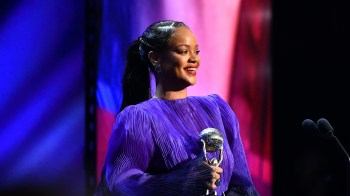
Luxury travel experiences are the next big thing from Louis Vuitton
Luxury travel experiences are the next big thing from Louis Vuitton

Instead of traditional Christmas gifts, Riley Adams said he and his wife have decided to travel to San Francisco. The two will stay at the luxury Fairmont Hotel and see the two-story gingerbread house it builds annually.
“I think both of us just couldn’t really think of anything that would make us any happier by buying a physical gift,” Adams said.
Adams is a 29-year-old investment adviser whose choice of holiday gifts perfectly illustrates a trend in retail that analysts say persuaded the owner of Louis Vuitton to spend billions on offering experiences rather than goods.
“You just want to have that lasting memory,” Adams said. “And I just feel that’s much more rewarding and satisfactory than a physical gift.”
Spending on experiences such as travel, restaurants and events has soared, so LVMH — the parent company of Louis Vuitton, Christian Dior and Dom Perignon — announced Friday that it’s spending $3.2 billion to purchase the Belmond hotel group, which owns the Hotel Cipriani in Venice, Italy, the Copacabana Palace in Rio de Janeiro and the Orient Express rail service.
Spending on experiences has grown four times faster than spending on goods, according to a McKinsey & Company report from last year. The report found the change is primarily driven by millennials’ spending habits.
“On experiences, millennials outspend the previous generations, so both the Gen X as well as the boomers,” said Sophie Marchessou of McKinsey.
LVMH saw double-digit sales growth this year, but retail consultant Milton Pedraza of the Luxury Institute describes the hotel purchase as a savvy move. He said luxury goods companies have been slow to prioritize services.
“If they want to remain viable in the future, they need to start investing in experiential or service brands,” Pedraza said.
Some industry watchers attribute the shift in spending over the past decade to the rise of the smartphone, their ubiquitous cameras and social media. David Schick of Consumer Edge Research said ephemeral experiences, such as a trip abroad, can now be captured and shared.
“This becomes your building block of who you are as a consumer,” he said, “in the way that the shirt you wore or the bag you had may have been 10 or 20 years ago.”
Click the audio player above to hear the full story.
There’s a lot happening in the world. Through it all, Marketplace is here for you.
You rely on Marketplace to break down the world’s events and tell you how it affects you in a fact-based, approachable way. We rely on your financial support to keep making that possible.
Your donation today powers the independent journalism that you rely on. For just $5/month, you can help sustain Marketplace so we can keep reporting on the things that matter to you.


















